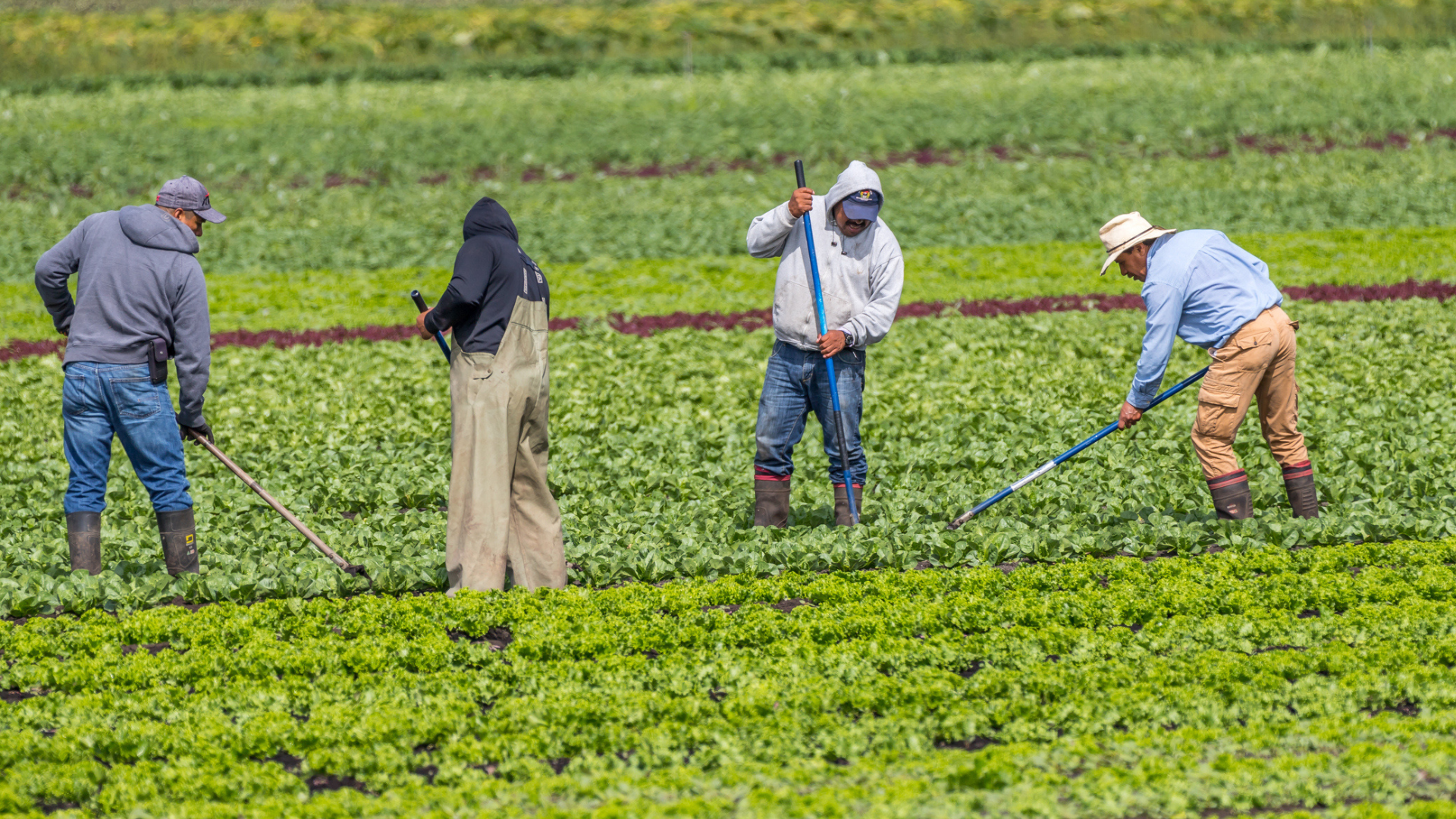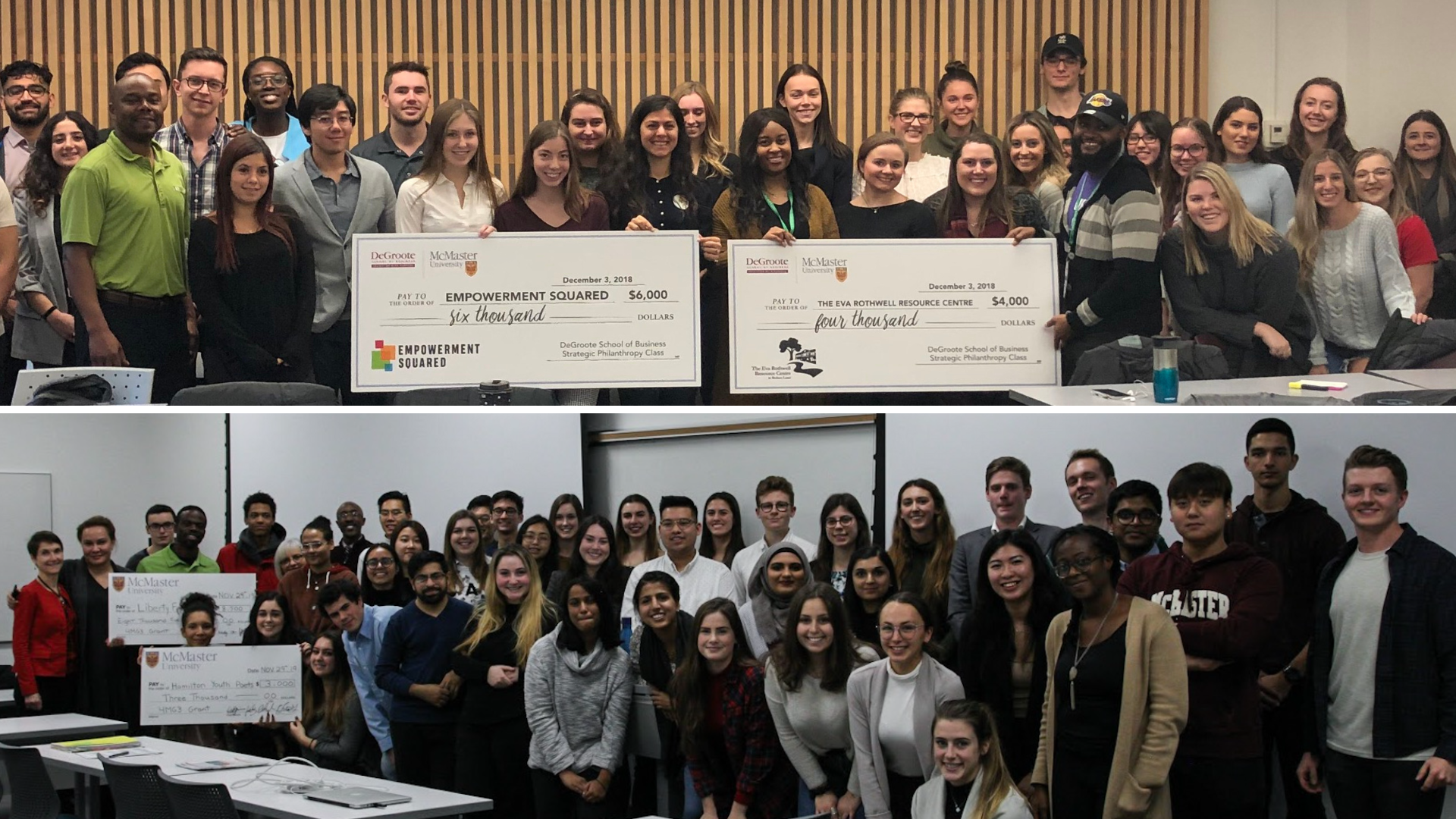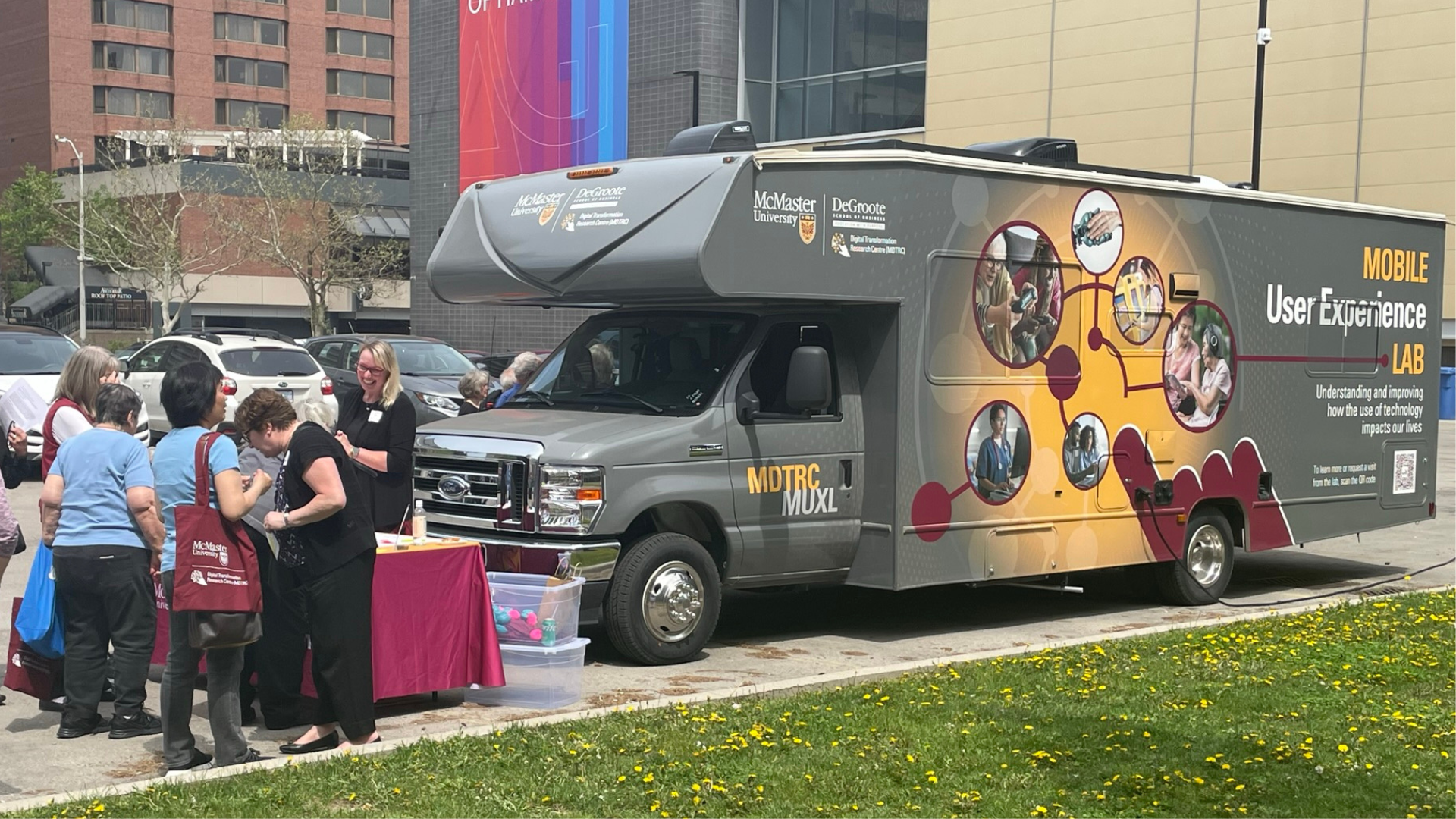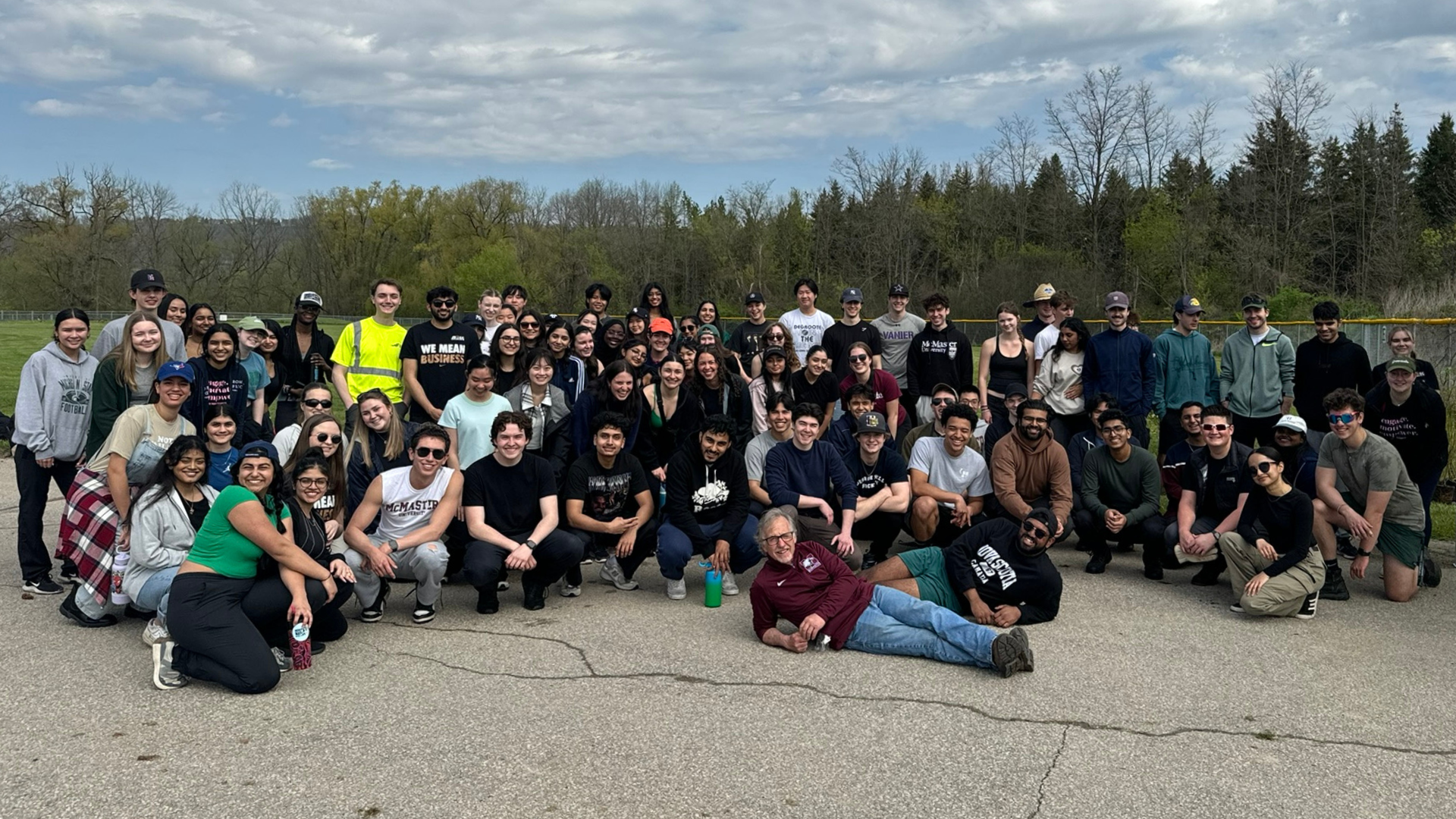RESEARCH STAFF STRATEGIC PLAN | ENGAGING COMMUNITIES
New Partnership Propels Researcher’s ‘CrowdFeeding’ Project Through Rich Data
July 1, 2024 ·
Contributed by: Izabela Shubair, DeGroote Contributor
Share

A list of available supermarket items appears on the screen. Bananas, check. Milk, check. Ground beef, check. After clicking numerous items, a $50 total indicates you’ve reached your allotted budget. But this isn’t your typical grocery delivery app. The innovative technology is part of a unique solution to deliver fresh food to those in need through software that streamlines the operations of the food rescue ecosystem.
Under the leadership of DeGroote researcher Elkafi Hassini, the CrowdFeeding project has taken a significant step forward. A new partnership with Environics Analytics, a renowned data, analytics, and marketing services company, has bolstered the project’s potential to make a real difference in reducing food waste and hunger in Canada.
“A lot of food surplus is wasted, and both the supermarkets and the food banks think something should be done about it,” says Hassini. “So, we thought, can we use technology to help? The pilot we are working on is almost like a regular online ordering app but customized for marginalized communities that use the food bank. Stores will offer surplus in good condition. After a food bank client has placed their order through the app, a system of taxi driver volunteers will deliver the food.
“We hope to fuse Environics Analytics’ data sets with our surveys to help us target those most in need and deploy services that best serve particular neighbourhoods.”
The Environics Analytics-DeGroote Partnership
The two-year agreement with Environics Analytics provides Hassini and his team access to three data sets that offer rich and specific contextual views of the Canadian landscape. All three data sets are privacy-friendly and include information as detailed as small geographic levels, such as postal code areas, which will help tailor services to the specific needs of individual communities.
One data set contains detailed information on the health status of Canadians from more than 110,000 respondents and is modelled down to over 800,000 Canadian postal codes. It uses best-in-class methodologies while maintaining strict compliance with privacy. Another consists of current-year estimates for more than 750 variables and includes demographic projections three, five, and 10 years into the future. It was developed by leveraging rich data from Statistics Canada’s Canadian Census and other sources. The final data set is created from Vividata’s study on print readership, non-print media exposure, product usage, and lifestyles.
With such data, Hassini and his team will be able to:
- Utilize socio-economic and demographic insights;
- Optimize social service delivery by identifying and supporting vulnerable populations more accurately;
- Understand media consumption patterns to effectively engage with the community, fostering participation in decision-making processes.
“For example, Environics Analytics may have data on how people in a particular part of the city use transit versus their own vehicles,” explains Hassini. “With that information, we will be able to customize how we would use the CrowdFeeding app for those clients in terms of whether they will be interested in home delivery.”
Uschi Reeves is Environics Analytics’ Senior Vice President, Insights and Client Services. She says the company’s decision to partner with DeGroote on the CrowdFeeding research aligns with its commitment to innovation, social impact, and data-driven insights. It also allows Environics Analytics to leverage the strength of its locally specific data.
“We believe deeply in what we do, and having the opportunity to contribute to educational initiatives through lectures, workshops, internships, and research allows us to bridge the gap between academic knowledge and industry practice,” she says. “Something like CrowdFeeding fits really nicely with our data sets when it comes to allocating resources and identifying neighbourhoods that have a certain need or interest. The relevant data will allow the research team to identify actionable insight for a worthy cause.”
Both Hassini and Reeves agree that the partnership also has the potential to grow in numerous ways. Among them is Environics Analytics providing additional expertise to help McMaster researchers understand and use the data; Environics Analytics playing a more active role in research projects; and additional two-way data sharing between McMaster and the company. Hassini’s research team will also leverage the partnership to seek funding from granting agencies to support their research on food rescue, including running pilots with local community partners.
“What’s exciting is that Environics Analytics is open to building a stronger long-term data-sharing relationship,” says Hassini.
The Importance of Canadian Data Sets
A key element of DeGroote’s promising partnership with Environics Analytics is that the company collects Canada-specific data. Often, researchers rely on data collected in the U.S. However, access to local data ensures that research findings are directly applicable to the Canadian context by considering unique cultural, social, and economic factors that help to address a wide range of scenarios. Data quality, Reeves says, is essential for reliable research outcomes.
“Canadian researchers need access to data sources that adhere to Canadian data standards and regulations, ensuring the accuracy and reliability of the information used in their studies,” she says. “So, it’s our hope that Elkafi can rely on our data to not only be accurate but that he can also rely on us to make sure we’ve done our due diligence in ensuring it adheres to all the privacy and ethical standards that have been set for Canada.”
Jan Kestle, President and CEO of Environics Analytics, is excited about the effect of the company’s real-world data on the Canadian landscape. Not only does Environics Analytics’ data help Canadian businesses, government, and not-for-profits become more data-driven, she says, it also impacts local initiatives such as the CrowdFeeding project and the future professionals that will be trained by the DeGroote School of Business.
“When data becomes information and information informs strategy, everyone benefits — from both a social and an economic perspective,” says Kestle. “Data is most useful when someone can actually use it to make a difference. That’s why we are excited to support local initiatives. They help people see the difference the data can make. We have also been very excited about the spirit and reality of collaboration with DeGroote. It is advancing us toward our shared purpose.”
Adds Hassini, “It makes so much sense to work with a Canadian-based company like Environics Analytics. They understand the speed with which we do research, they understand that we need open data, and they give us some flexibility on how we use the data, which is all very helpful. Plus, they are committed to research that makes community-based impact.”















